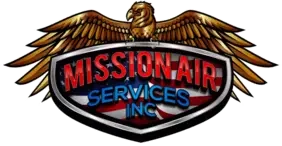Maintaining a comfortable indoor environment is critical to the success of any commercial business in Plant City, FL. With the hot and humid Florida climate, your HVAC system works hard year-round, ensuring optimal temperatures and air quality for employees and customers alike. However, like any mechanical system, your commercial HVAC unit requires regular maintenance to perform at its best.
Even though Plant City doesn’t experience the drastic temperature shifts found in other parts of the country, HVAC maintenance is still essential to prevent breakdowns, improve energy efficiency, and extend the lifespan of your equipment. In this post, we’ll dive into some key fall maintenance tips for commercial HVAC systems and explain why these tasks are crucial for businesses operating in this area.
1. Inspect Air Filters and Ductwork
Air quality is a priority for any commercial building, whether it’s an office space, a retail store, or an industrial facility. One of the simplest but most effective HVAC maintenance tasks is checking and replacing air filters.
Why Air Filter Maintenance Matters
Dirty or clogged filters make your HVAC system work harder to circulate air, resulting in increased energy consumption and higher utility bills. Additionally, poor air filtration can lead to reduced indoor air quality, which may affect the health and productivity of your employees. The Environmental Protection Agency (EPA) estimates that poor indoor air quality can cost businesses up to $168 billion annually in lost productivity.
Ductwork Inspection
Along with filters, ductwork should be inspected for leaks, blockages, or debris buildup. According to the U.S. Department of Energy, about 20-30% of the air moving through the duct system is lost due to leaks or improper insulation. Fixing these issues not only improves efficiency but also ensures that your HVAC system delivers consistent, clean air to all areas of the building.
2. Check Thermostat Calibration and Settings
Thermostats play a crucial role in maintaining a comfortable indoor environment and regulating energy usage. Fall is the perfect time to inspect and calibrate your thermostats to ensure accurate readings and settings.
Why Calibration is Important
A thermostat that is even slightly off in its readings can lead to overcooling or overheating, causing unnecessary strain on your HVAC system. According to Energy Star, businesses can save up to 10% on heating and cooling costs by properly setting and maintaining thermostats. Calibration ensures that your system only operates when needed, which saves energy and reduces wear and tear on the equipment.
Programmable and Smart Thermostats
Consider upgrading to programmable or smart thermostats if you haven’t already. These devices allow you to set specific temperature schedules, so your system isn’t running when the building is unoccupied, such as during weekends or off-hours. Smart thermostats can even learn your building’s temperature preferences and make automatic adjustments for maximum efficiency.
3. Inspect and Clean Coils
Both evaporator and condenser coils are critical to the cooling and heating processes in HVAC systems. Over time, these coils can become dirty or corroded, reducing the efficiency of the system.
Cleaning Coils for Better Efficiency
Dirty coils can reduce your HVAC system’s efficiency by up to 30%, according to the U.S. Department of Energy. When debris and dirt build up on the coils, it acts as insulation, preventing the coils from effectively transferring heat. This forces the system to work harder and consume more energy to achieve the desired temperature. Regular cleaning of coils in the fall ensures that your system will be ready to handle the demands of both mild and extreme weather.
4. Lubricate Moving Parts
Your HVAC system has multiple components that rely on proper lubrication to function smoothly. Fall maintenance should include a thorough inspection of all moving parts, including fan belts, motors, and bearings.
Prevent Mechanical Wear
Lubrication prevents friction and wear, which can lead to mechanical failure if left unchecked. Lack of lubrication is a common cause of motor failure in HVAC systems, and replacing a motor can be costly. By lubricating these parts, you not only extend the lifespan of your HVAC equipment but also reduce the risk of unexpected breakdowns. Routine maintenance like this is estimated to reduce the chance of system failure by up to 95%, according to industry experts.
5. Test and Tighten Electrical Connections
Electrical issues are a leading cause of HVAC malfunctions. Regularly testing and tightening electrical connections during fall maintenance helps prevent potential hazards and ensures the system operates safely.
Why This Step Is Crucial
Loose or faulty electrical connections can cause intermittent power failures, short circuits, or even fires. Additionally, improper connections can force the HVAC system to draw more power than necessary, resulting in higher energy bills and premature system wear. Technicians should thoroughly inspect all electrical components, including wiring, fuses, and circuit breakers, to ensure everything is functioning correctly.
6. Inspect Belts and Pulleys for Wear
Belts and pulleys are small yet vital components of your HVAC system. If they become worn or damaged, they can lead to system inefficiencies or even failures.
Avoid Unplanned Downtime
A worn belt can slip or snap, causing the entire HVAC system to stop working, which could lead to expensive repairs and downtime. Regularly inspecting and replacing worn belts ensures that your system operates smoothly and avoids unexpected breakdowns during peak hours of operation. Preventative maintenance is much cheaper than emergency repairs.
7. Clear Outdoor Units of Debris
In Plant City, where vegetation can be lush year-round, outdoor HVAC units can easily become obstructed by leaves, branches, or other debris. This debris restricts airflow and reduces the efficiency of the condenser.
Why Outdoor Unit Maintenance Matters
Restricted airflow can cause the system to overheat and malfunction, potentially leading to compressor failure, one of the most expensive HVAC repairs. Keeping the area around the unit clear by at least two feet will ensure proper airflow and extend the life of the equipment.
8. Conduct a Comprehensive System Test
Once individual components have been inspected, cleaned, and repaired, it’s essential to conduct a comprehensive system test to ensure everything is working as it should.
System Testing for Peace of Mind
This test should include checking refrigerant levels, system pressures, and overall performance. By ensuring your HVAC system is operating within manufacturer-recommended parameters, you can prevent unexpected failures and ensure your system is prepared for the months ahead.
9. Schedule Regular Professional Inspections
While your in-house maintenance team can handle some tasks, others require the expertise of a professional HVAC technician. Scheduling a professional inspection in the fall allows for a more thorough review of your system and ensures all aspects are functioning properly.
Why Professional Inspections Are Important
Trained technicians have the tools and knowledge to spot potential issues before they turn into costly repairs. According to a study by the Building Efficiency Initiative, regularly serviced commercial HVAC systems can achieve up to 40% in energy savings compared to neglected systems. A professional inspection will also ensure that your HVAC system complies with any local or state regulations.
For Commercial HVAC Services in Plant City, FL, Contact Mission Air Services Today
Regular fall maintenance of your commercial HVAC system is essential to keep it running efficiently and reliably, particularly in a city like Plant City, FL, where the climate can be demanding year-round. By performing routine tasks like checking filters, cleaning coils, and inspecting electrical components, you can reduce energy costs, prevent costly breakdowns, and extend the life of your system.
At Mission Air Services, we specialize in providing high-quality commercial HVAC maintenance and repair services. Our team of experienced technicians can handle all your HVAC needs, ensuring your system operates at peak performance throughout the year. Whether you need a seasonal inspection or emergency repairs, you can trust us to deliver expert service with professionalism and care.
Don’t wait for a problem to occur—schedule your fall HVAC maintenance today. Contact Mission Air Services in Plant City, FL, and let us help keep your commercial HVAC system running smoothly for years to come.

